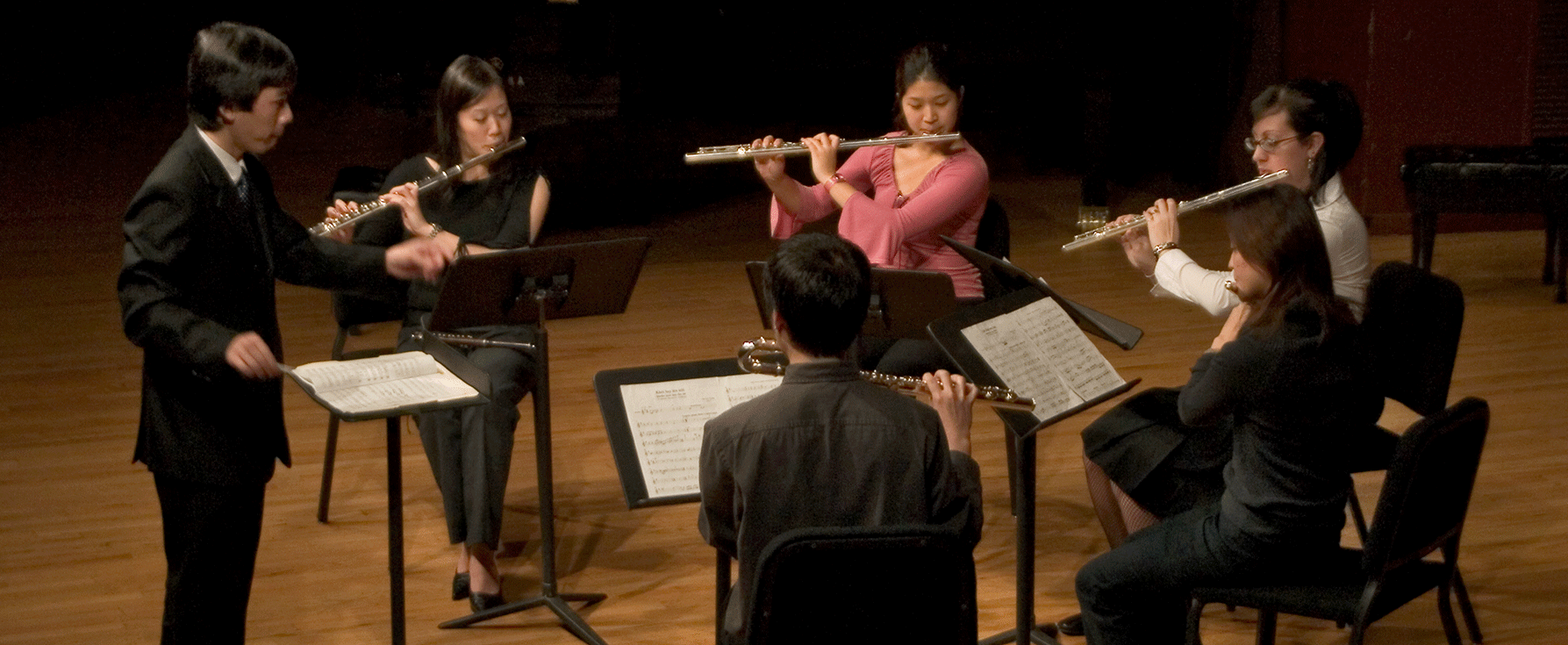| << Chapter < Page | Chapter >> Page > |

Composition and performance are related and sometimes inseparable activities in the creation of music (as they are also in theater and dance). In the Western tradition, the roles of performer and composer have often been the province of separate people, a composer, playwright, or choreographer authoring a work that is then brought to life by others who are skilled as instrumentalists/vocalists, actors, or dancers. Compositions are preserved in some kind of written form or passed on through oral tradition. The “work” thus has an existence that is separate from its performance; it is an independent entity to be brought to life each time it is performed, or re-created. Conservatory training in the performing arts typically covers both creative and interpretative functions, and individuals frequently cross over from one to the other.
In traditions heavily based on improvisation, such as Indian classical music, African tribal music, and jazz, the performers are the composers and the performance is the work. Improvisations are sometimes recorded, or later written down based on memory. But evanescence is a defining aspect of extemporaneous creation. Many performance traditions involve preexisting material that the performer is expected to flesh out in the course of performance. Indeed, some degree of spontaneity is part of any live performance and no two performances of the same work, no matter how meticulously notated, will be identical. Whatever the relationship between creation and performance, composition is a highly disciplined art that requires mastery over often very sophisticated materials and a creative impulse whose origins and mental processes remain a mystery.
In traditions heavily based on improvisation, such as Indian classical music, African tribal music, and jazz, the performers are the composers and the performance is the work. Improvisations are sometimes recorded, or later written down based on memory. But evanescence is a defining aspect of extemporaneous creation. Many performance traditions involve preexisting material that the performer is expected to flesh out in the course of performance. Indeed, some degree of spontaneity is part of any live performance and no two performances of the same work, no matter how meticulously notated, will be identical. Whatever the relationship between creation and performance, composition is a highly disciplined art that requires mastery over often very sophisticated materials and a creative impulse whose origins and mental processes remain a mystery.
Performance practice refers to the conventions and customs associated with the performance of a particular musical repertory—for example, the instruments employed, techniques of singing, and the nature and extent of improvisation that are expected.
Over the past 50 years, the performance of early music from the Western tradition has become increasingly the province of specialists trained in performance practices that have long been obsolete. For example, singers of medieval and Renaissance music cultivate a vocal style that is different from that employed in music of later periods, and instrumentalists learn techniques associated with playing period instruments, either old instruments that have been preserved or modern reproductions. Professional early music groups are usually led by scholar/performers devoted to the discovery and study of older repertory, and to seeking solutions to the many unanswered questions about the interpretation of early music. Many music schools, conservatories, and college music departments offer courses in the history and performance practice of early music and the opportunity to perform in early music ensembles. Churches, art galleries, museums, and small concert halls are favorite venues for live concerts of early music.

Notification Switch
Would you like to follow the 'Music appreciation: its language, history and culture' conversation and receive update notifications?